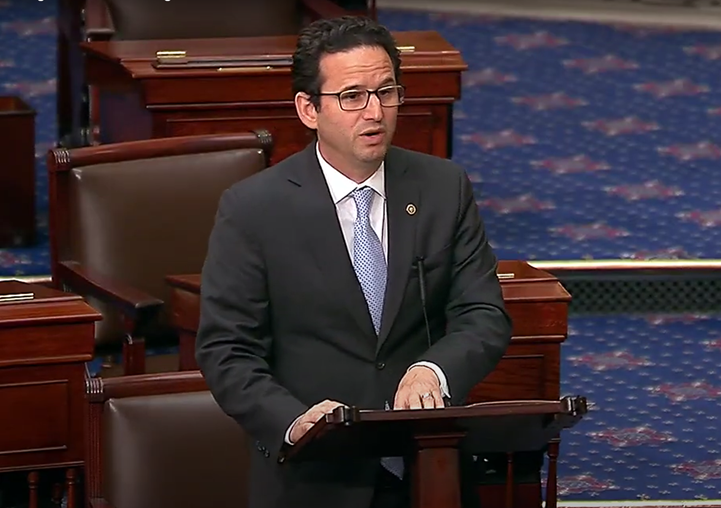For Immediate Release
May 6, 2025
Contact:
Mike Inacay (Schatz) at press@indian.senate.gov
SCHATZ MARKS MISSING AND MURDERED INDIGENOUS WOMEN AWARENESS WEEK, CALLS FOR MORE URGENCY TO ADDRESS ONGOING CRISIS
Video Of Senator Schatz’s Remarks Available Here
WASHINGTON – U.S. Senator Brian Schatz (D-Hawai‘i), vice chairman of the Senate Committee on Indian Affairs, took to the Senate floor today to highlight Missing and Murdered Indigenous Women (MMIW) Awareness Week. In his remarks, Schatz honored the lives lost, acknowledged the deep and ongoing pain in Native communities, and renewed his call for meaningful federal action.
“This week is Missing and Murdered Indigenous Women Awareness Week,” Senator Schatz began. “And it is a sobering reminder of both the breathtaking scale of this tragedy that has plagued Native communities for generations, and how far we still have to go to bring justice and healing to the victims and families affected by it.”
“This crisis is likely out of view for most Americans, but it stares us in the face,” Senator Schatz continued. “Murder is the third leading cause of death for American Indian and Alaska Native women and girls, which is 10 times the national average. American Indians and Alaska Natives are more than twice as likely to experience violent crimes, including rape and sexual assault, than any other group of people in the United States. And in Hawai‘i, 64 percent of human trafficking survivors are Native Hawaiian.”
“Even so, we still don’t know the true extent of the crisis because, for so long, the federal government failed to take it seriously. It was more convenient to pretend as if it didn’t exist than to dedicate federal resources to investigating the crimes and prosecuting those responsible. And, as a result, in far too many instances, justice has not been served,” Senator Schatz concluded. “Today, we remember the many victims lost to this devastating epidemic of violence and recommit ourselves to helping find justice and healing for all those affected.”
Schatz has long worked alongside Native leaders to advance bipartisan legislation aimed at improving safety and justice in Native communities. He played a key role in the 2022 reauthorization of the Violence Against Women Act, which restored Tribal jurisdiction over certain violent crimes and expanded support for Native communities.
Schatz cosponsored a Senate resolution designating yesterday as the National Day of Awareness for Missing and Murdered Native Women and Girls.
The full text of Senator Schatz’s remarks is below. A video is available here.
This week is Missing and Murdered Indigenous Women Awareness Week, and it is a sobering reminder of both the breathtaking scale of this tragedy that has plagued Native communities for generations, and how far we still have to go to bring justice and healing to the victims and families affected by it.
This crisis is likely out of view for most Americans, but it stares us in the face. Murder is the third leading cause of death for American Indian and Alaska Native women and girls, which is 10 times the national average. 10 times the national average. American Indians and Alaska Natives are more than twice as likely to experience violent crimes, including rape and sexual assault, than any other group of people in the United States. And in Hawai‘i, 64 percent of human trafficking survivors are Native Hawaiian.
Even so, we still don’t know the true extent of the crisis because, for so long, the federal government failed to take it seriously. It was more convenient to pretend as if it didn’t exist than to dedicate federal resources to investigating the crimes and prosecuting those responsible. And, as a result, justice has not been served, and families haven’t been able to begin the process of healing.
To experience the tragedy of a loved one gone missing or a neighbor suddenly found dead is horrific in and of itself. But worse, these communities often have to shoulder the burden of finding answers all by themselves, while they’re grieving. Were that to happen anywhere else, to anyone else, we’d all be rightly outraged. The fact that it’s happening to Native Americans, in cities like Anchorage and Albuquerque, on remote reservations, and on Hawaiian homelands shouldn’t change our outrage.
After decades of underinvestment, Congress finally took steps to address this crisis when we reauthorized the Violence Against Women Act in 2022. As Chair of the Senate Committee on Indian Affairs at the time, I was proud to work with Native leaders and advocates and especially my good friend, the Vice Chair at the time, Lisa Murkowski, to restore Tribal jurisdiction for certain violent crimes and increase federal resources to keep Native families safe. And no one bill or action is going to remedy generations of neglect and injustice, but it was an important step forward – along with other bills – in turning the tide on this shameful and longstanding crisis.
There remains so much work to be done to ensure that Native people feel safe in their homes and communities. And it’s a priority that we continue to work on on the Indian Affairs Committee with Chairman Lisa Murkowski and others. But today, we remember the many victims lost to this devastating epidemic of violence and recommit ourselves to helping find justice and healing for all those affected.
###

